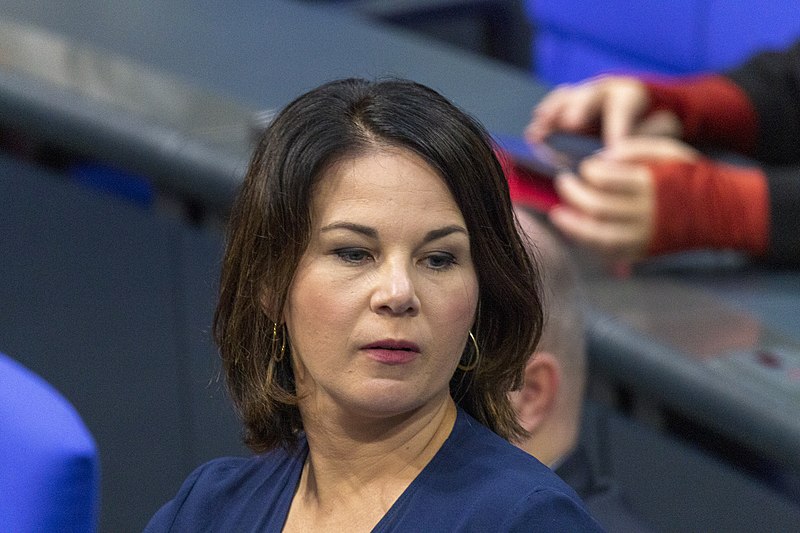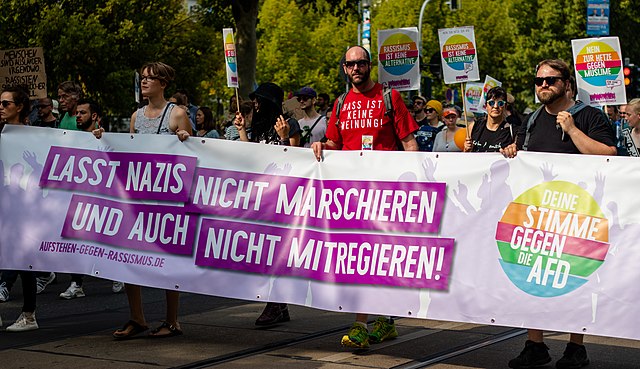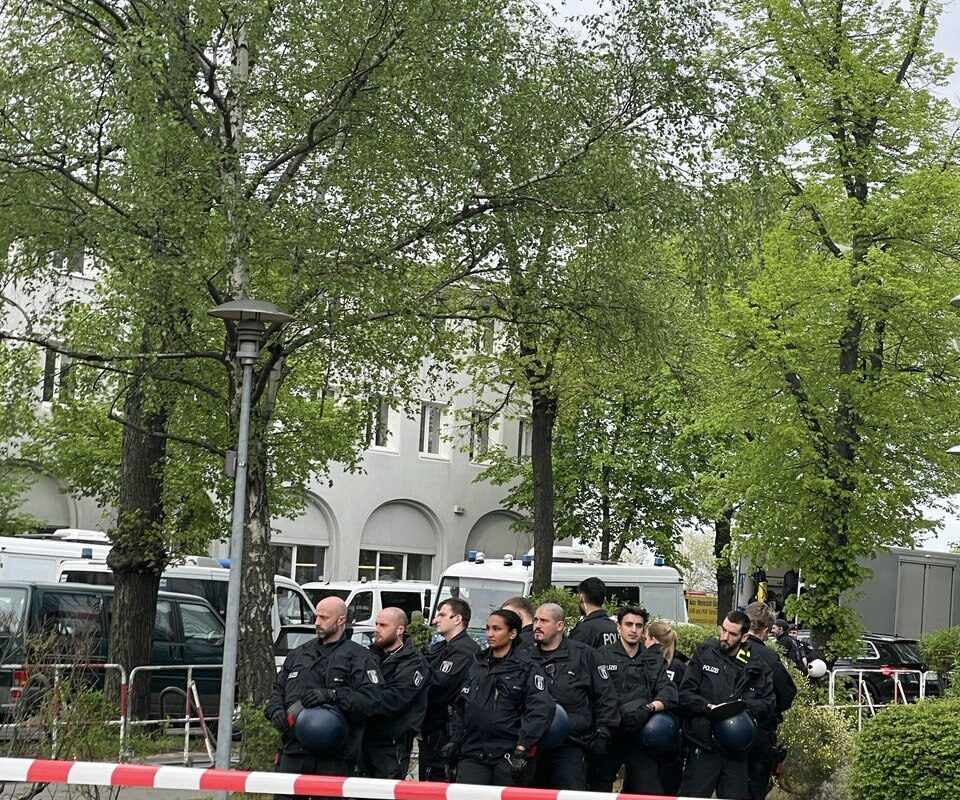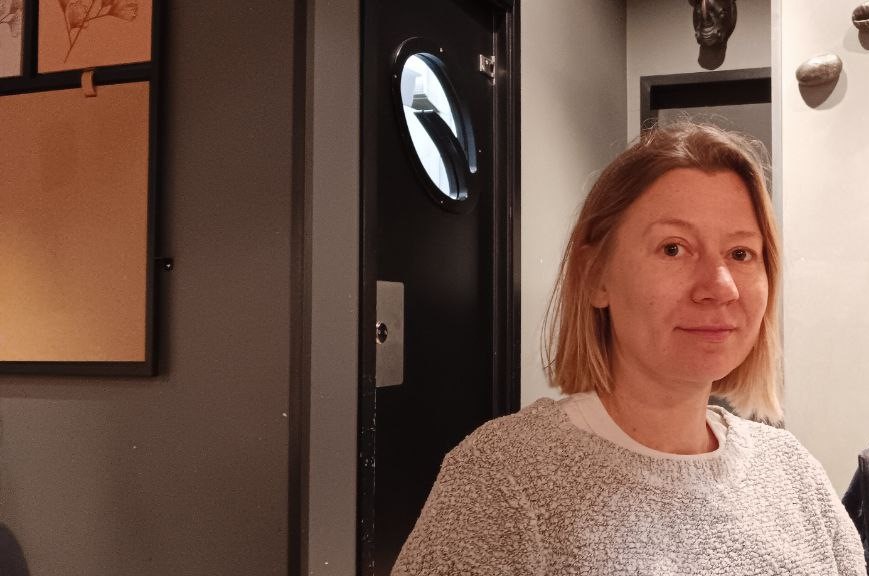Annalena Baerbock was wrapped in a dark green coat, in her hand two large stone tablets with ‘Ten Commandments’, which the Greens apparently want. Below the Moses display, in an advert it was written in capital letters: “why Green Commandments won’t lead us into the promised land.” This prominent ad appeared on the Friday before the Green Party Conference on the pages of the FAZ, the SZ and Zeit Online [the Frankfurter Allgemeine Zeitung, Stuttgarter Zeitung and die Zeit are all major German broadsheet newspapers]. The ad had been placed by the neo-liberal lobby organisation Initiative Neue Soziale Marktwirtschaft (INSM); which is mainly financed by the metal and electronics industry. The advert achieved its goal – all hell broke out on Twitter, various newspapers took up the subject, editorial boards produced fact sheets.
At the same time large parts of the economy are anything but afraid of the Greens. The party demonstrated this spectacularly at the Party Conference, in adopting the election programme. Pragmatic, constructive, eye to eye with the boardroom, two thirds of the delegates rejected a resolution that planned a €200 increase to Hartz-IV benefits. The abolition of the Schuldenbremse (debt ceiling) similarly failed to make it into the programme, and there will be no nationalisation of real estate corporations under the Greens. A resolution to increase the top tax rate to 53 per cent was also defeated – the Conference decided a “moderate” increase to 48 per cent. The rich could breathe again. The car industry also had reason to celebrate: cars with combustion engines won’t be banned till 2030, not from 2025 as originally planned. And the defence industry was pleased to here that the Greens do not categorically rule out deploying combat drones.
Former Siemens boss Joe Kaeser gave a guest speech. The new chairman of Siemens Energy, describes himself as a “Believer in Inclusive Capitalism.” He insistently campaigned at the Conference for a ‘social-ecological market economy‘ – as an alternative to socialism. He appealed to the Greens not to miss the big chance to promote the head of the Environment department into the executive board of Germany.
Early praise from the Capital Fraction
Private banks also show no fear of Baerbock and Co for a long time. At the beginning of May, the federal association of German banks showered the following praise in Handelsblatt [a major newspaper of German big business]: the Greens are perhaps the first party to have understand that the change to a sustainable economy is only achievable with the support of the banks and the capital markets.
At the end of May, the UBS bank published an analysis of the coming General Election. A government containing Greens would be no cause for concern for investors. It would actually yield possibilities: developers of renewable energy plants would profit, as would car manufacturers with a focus on electric cars, semiconductor companies and companies providing green energy. A government coalition with the CDU would be the most likely scenario to gain support from the Euro and the deployment of certain competencies to Brussels.
With so much early praise from important fractions of capital, its not surprising that the Bundesvereinigung der Deutschen Arbeitgeberverbände (BDA) [Confederation of German Employers’ Associations] has criticised the INSM campaign. “Personal attacks and a false use of Christian imagery is not a reasonable way of dealing with the necessary competition for political content.” Apparently this is not the style of the BDA.
It seems that the INSM has not yet got the capitalist class message: the Greens and their leader Annalena Baerbock could lead German capital into the “Promised Land”, in a country where a ‘Green-varnished’ capitalism has a future.
This text was first published in German in the weekly newspaper der Freitag Reproduced with permission. Translator: Phil Butland.




